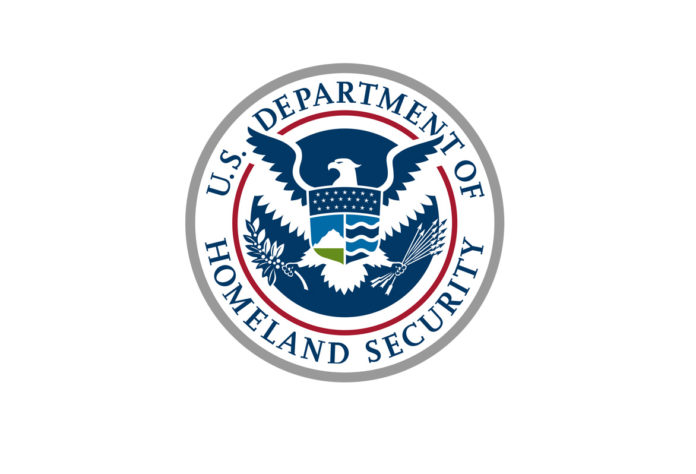WASHINGTON, D.C. – The Department of Homeland Security (DHS), through the Federal Emergency Management Agency (FEMA) and the Cybersecurity and Infrastructure Security Agency (CISA), has announced more than $18.2 million in Tribal Cybersecurity Grant Program (TCGP) awards to assist tribal nations with managing and reducing systemic cyber risk and threats. These are the first-ever Tribal Cybersecurity Grants to be awarded. The grant program was established by the Bipartisan Infrastructure Law and the more than 30 grant awards represent the largest number of awards ever provided by the Department to tribal nations in a single grant program.
“For far too long, tribal nations have faced digital and cybersecurity threats without the resources necessary to build resilience,” said Secretary of Homeland Security Alejandro N. Mayorkas. “The Department of Homeland Security’s first-ever Tribal Cybersecurity Grant Program awards announced today – made possible by President Biden’s Bipartisan Infrastructure Law – will help tribes and tribal communities ensure they have the tools to assess risks, implement solutions, and increase cyber defenses.”
Digital threats impacting American Indian and Alaska Native tribes are increasing and becoming more complex, and tribal sovereignty creates unique cybersecurity challenges for these communities who have been consistently underfunded and under-resourced. This program is another example of a unified approach across DHS. This FEMA-administered program leverages CISA’s capabilities to support grant recipients.
“With these first-ever Tribal Cybersecurity Grants, we are not just addressing immediate needs, but also reinforcing the infrastructure that supports the sovereignty and resilience of tribal nations,” said FEMA Administrator Deanne Criswell. “This funding, benefiting the largest number of tribal recipients to build cybersecurity resilience in FEMA’s history, is a testament to our dedication to a safer, more secure future for all communities.”
“These grants will help tribal nations combat the growing cyber threats they face every day and build resilience for their critical infrastructure,” said CISA Director Jen Easterly. “We’re proud to work with our federal partners to help tribal nations strengthen their cybersecurity.”
The Tribal Cybersecurity Grant Program will fund efforts to establish critical governance frameworks for tribal nations to address cyber threats and vulnerabilities, identify key vulnerabilities and evaluate needed capabilities, implement measures to mitigate the threats, and develop a 21st-century cyber workforce across local communities.
All Tribal Cybersecurity Grant Program recipients are required to participate in a limited number of free services provided by CISA. These services are:
Cyber Hygiene Vulnerability Scanning – Evaluates external network presence by continuous scanning public, static internet protocol (IPs) for accessible services and vulnerabilities.
Nationwide Cybersecurity Review – A free, anonymous, annual self-assessment designed to measure gaps and capabilities of a recipient’s cybersecurity programs.
The grants will significantly improve national resilience to cyber threats by giving tribal nations much-needed resources to address network security and take steps to protect against cybersecurity risks to help them strengthen their communities. In addition, federally recognized tribes are eligible to apply for millions more in tribal cybersecurity funding that will be announced later this year.
On Sept. 27, 2023, FEMA published the notice of funding opportunity (NOFO) and received a total of 73 applications totaling $56,553,628 in funding requests. The awardees announced are:
| Tribal Nation | Awards |
| Muscogee (Creek) Nation | $1,013,627 |
| Choctaw Nation of Oklahoma | $778,400 |
| Cherokee Nation | $971,000 |
| San Pasqual Band of Mission Indians | $605,588 |
| Inupiat Community of the Arctic Slope | $3,009,214 |
| Blackfeet Nation | $38,850 |
| Central Council Tlingit and Haida Indian Tribes | $108,135 |
| The Chickasaw Nation | $365,516 |
| Saint Regis Mohawk Tribe | $861,935 |
| San Carlos Apache Tribe | $67,253 |
| Southern Ute Indian Tribe | $2,022,036 |
| Mashantucket Pequot Tribal Nation | $494,605 |
| Ponca Tribe of Nebraska | $768,798 |
| Mashpee Wampanoag Tribe | $673,699 |
| Pueblo of Isleta | $468,825 |
| Nez Perce Tribe | $866,250 |
| Pueblo of Jemez | $480,344 |
| Tunica-Biloxi Tribe of Louisiana | $492,490 |
| Pueblo of Laguna | $106,500 |
| Sokaogon Chippewa Community | $900,000 |
| Swinomish Indian Tribal Community | $546,000 |
| Taos Pueblo | $71,463 |
| Metlakatla Indian Community | $24,072 |
| The Suquamish Tribe | $467,355 |
| Aroostook Micmac Council | $17,850 |
| Chippewa Cree Tribe | $21,975 |
| Coyote Valley Band of Pomo Indians | $152,305 |
| Pinoleville Pomo Nation | $152,576 |
| Colusa Indian Community | $214,607 |
| Paskenta Bank of Nomlaki Indians | $317,400 |
| Redding Rancheria | $477,645 |
| Twenty-Nine Palms Band of Mission Indians | $690,532 |
| Total | $18,246,845 |















































